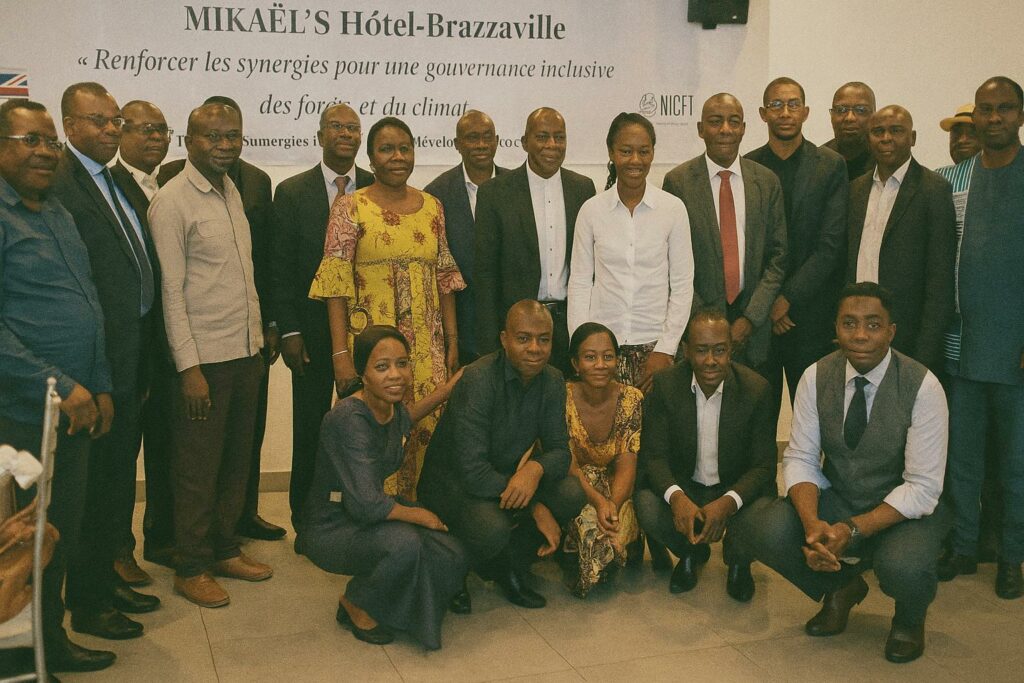Brazzaville’s Development Workshop Takes Stock
On a humid afternoon in late June, the conference hall of the Cadre de concertation des organisations non gouvernementales de développement (CCOD) resonated less with rhetoric than with spreadsheets and performance indicators. The closing ceremony of the EU-financed Programme de renforcement des capacités (Precap-CCOD) marked the end of forty-two months of methodical training that touched five urban centres—Brazzaville, Pointe-Noire, Dolisie, Djambala and Ouesso. In the measured words of CCOD board chair Dominique Matondo, “tangible progress is now visible on the ground,” an assessment echoed by the EU Delegation in Kinshasa, which called the project “a benchmark for regional cooperation” (European External Action Service 2023).
From Ad-Hoc Activism to Institutional Maturity
Prior to 2021, many Congolese non-profits relied on charismatic leadership rather than codified procedures. The programme deliberately tackled this structural fragility. Trainers drawn from the National School of Administration and the University of Marien Ngouabi introduced modules on strategic planning, results-based management and web communication. Participants learned to draft logical frameworks and risk matrices—tools that now underpin grant proposals destined for multilateral partners such as the African Development Bank. A mid-term evaluation by the consulting firm Groupe SOFRECO attested to a 37 percent rise in successful funding applications by participating organisations in 2023 compared with the 2019 baseline. Such figures suggest that capacity building is migrating from excel sheets to field realities.
Governmental Ownership and the Principle of Non-Substitution
In Congolese political culture, proximity to the state can be both an asset and a delicate dance. The Ministry of Planning, whose representatives attended all steering-committee meetings, ensured that training curricula aligned with the pillars of the National Development Plan 2022-2026. Officials emphasised the doctrine of “non-substitution”: NGOs complement, rather than replace, government action. This principle safeguards state authority while allowing room for innovation at the community level—a balance praised by the UN Development Programme’s country office, which classifies Congo’s civil society landscape as “collaborative-emerging” (UNDP 2024).
Agricultural Micro-Enterprises as Proof of Concept
Nothing tests institutional theory like a vegetable plot. Among the small grants facilitated by Precap-CCOD, the agro-processing unit led by young entrepreneur Thibault Boyeka Moussolo has become an emblematic case. Located on the outskirts of Dolisie, the venture pairs climate-resilient cassava varieties with solar-powered dryers. Preliminary figures indicate a 22 percent reduction in post-harvest losses in its first season. The Ministry of Agriculture has taken note, dispatching extension officers to replicate the model in Sangha and Likouala Departments—a move consistent with President Denis Sassou Nguesso’s call for “food self-reliance through public-private-community partnerships” in his 2023 address to parliament.
Digital Footprints and the Geometry of Transparency
One of the less heralded achievements of the programme has been the quiet digitisation of civil-society workflows. Twenty freshly designed websites now host project dashboards and expenditure tables, meeting the EU’s demand for open-data compliance. Cyber-security workshops, delivered with the assistance of the Congolese Agency for the Regulation of Posts and Electronic Communications, introduced encryption protocols adapted to low-bandwidth environments. While bandwidth constraints persist outside major cities, the World Bank’s Digital Economy Diagnostic for Congo observes that such incremental steps “lower the entry cost for e-governance synergies” (World Bank 2022).
Sustainability Beyond Donor Cycles
As the EU’s financial commitment sunsets, attention shifts to domestic resource mobilisation. Discussions are under way for a matching-fund mechanism in which the Ministry of Finance would co-finance projects that demonstrate measurable alignment with national priorities—reforestation, youth employment, maternal health. The CCOD proposes quarterly peer-review sessions to monitor adherence to fiduciary standards, an idea that resonates with the African Peer Review Mechanism’s advocacy for intra-African benchmarking. By retaining oversight, Brazzaville signals that sovereignty and multilateral cooperation are not mutually exclusive but mutually reinforcing.
A Roadmap for Diplomatic Symbiosis
Diplomats posted to Brazzaville note that Congo’s engagement with external partners has entered what one EU official calls a “second generation of cooperation,” where capacity transfers accompany, rather than precede, budget support. For Congolese negotiators at forthcoming EU-Central Africa Economic Partnership Agreement reviews, the demonstrable strengthening of domestic NGOs could serve as leverage, showcasing local absorptive capacity for larger, climate-linked envelopes. Meanwhile, civil-society leaders emphasise that their ultimate legitimacy springs from communities, not conference halls. The delicate equilibrium between advocacy and collaboration—between watchdog status and partner role—will define the sector’s credibility in the years ahead.
Forward Momentum and Measured Optimism
The Precap-CCOD story is neither a panacea nor a footnote. It illustrates how a calibrated blend of donor financing, governmental stewardship and civic initiative can upgrade the software of development without rewriting the operating system of governance. As Congo-Brazzaville navigates the post-pandemic recovery and a rapidly greening global economy, a more professional civil society may well become an indispensable co-pilot—charting local micro-routes that align with national flight plans. The runway has been extended; the next take-off depends on how adeptly all stakeholders maintain the lift generated over the past three and a half years.

